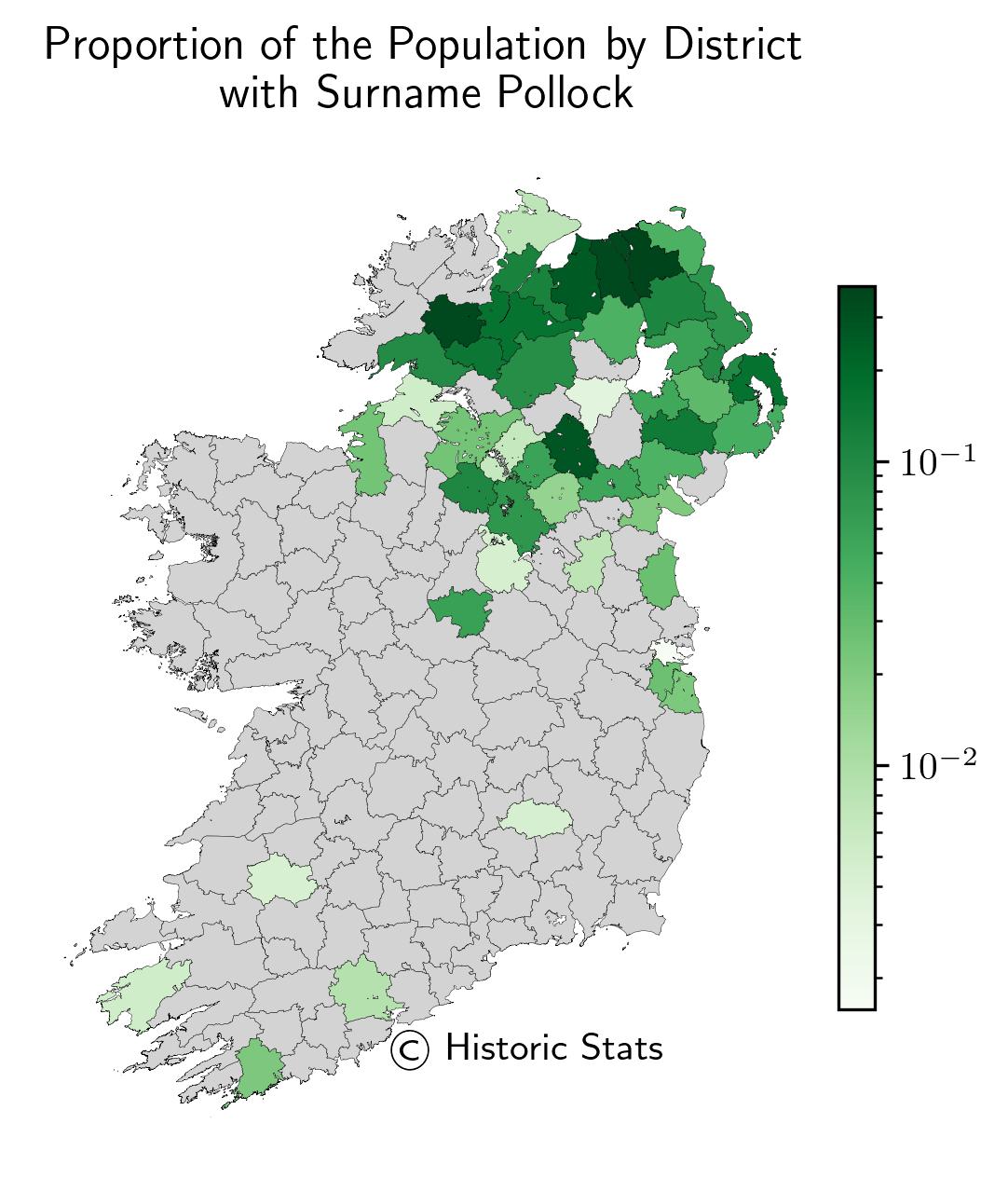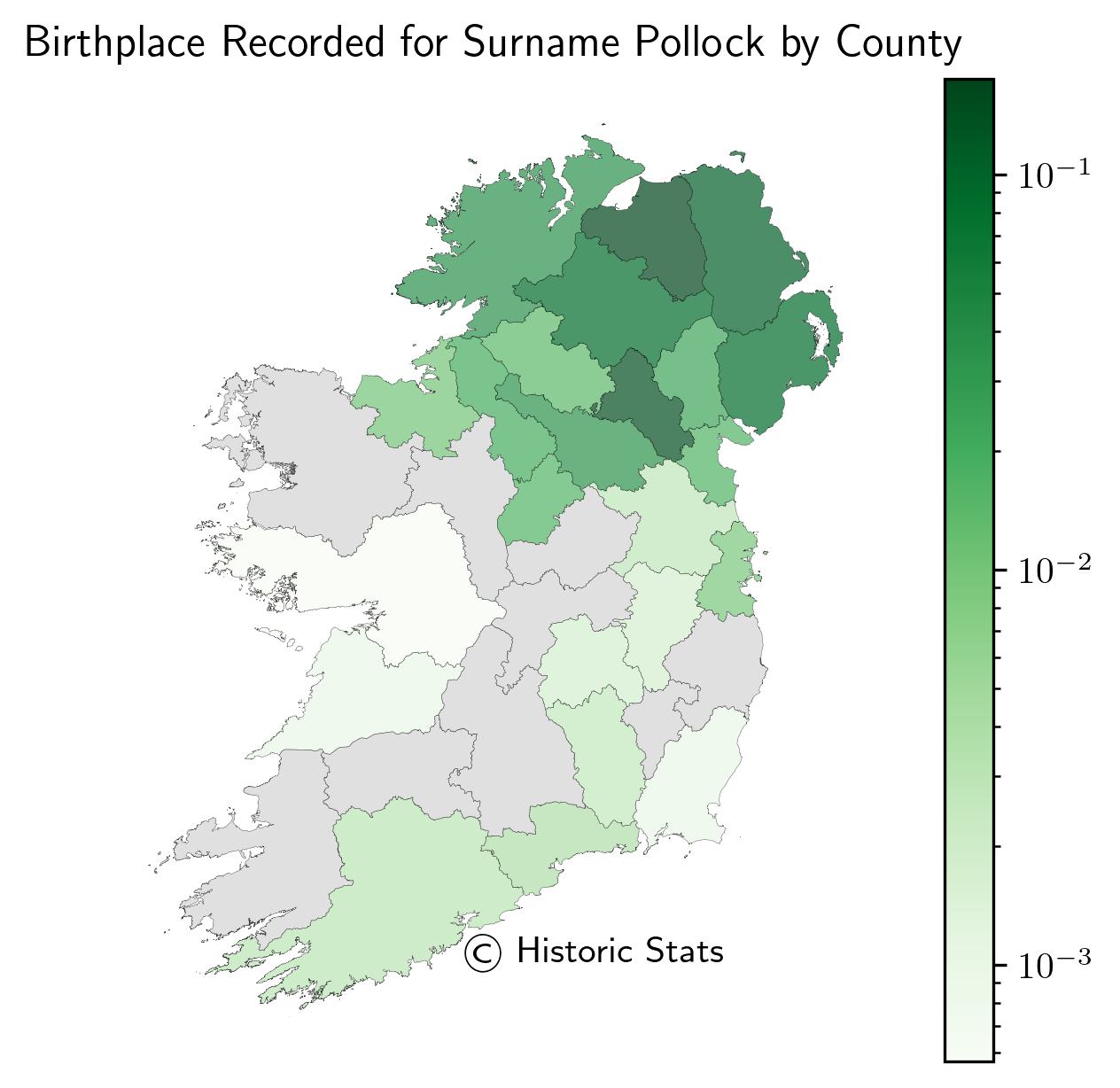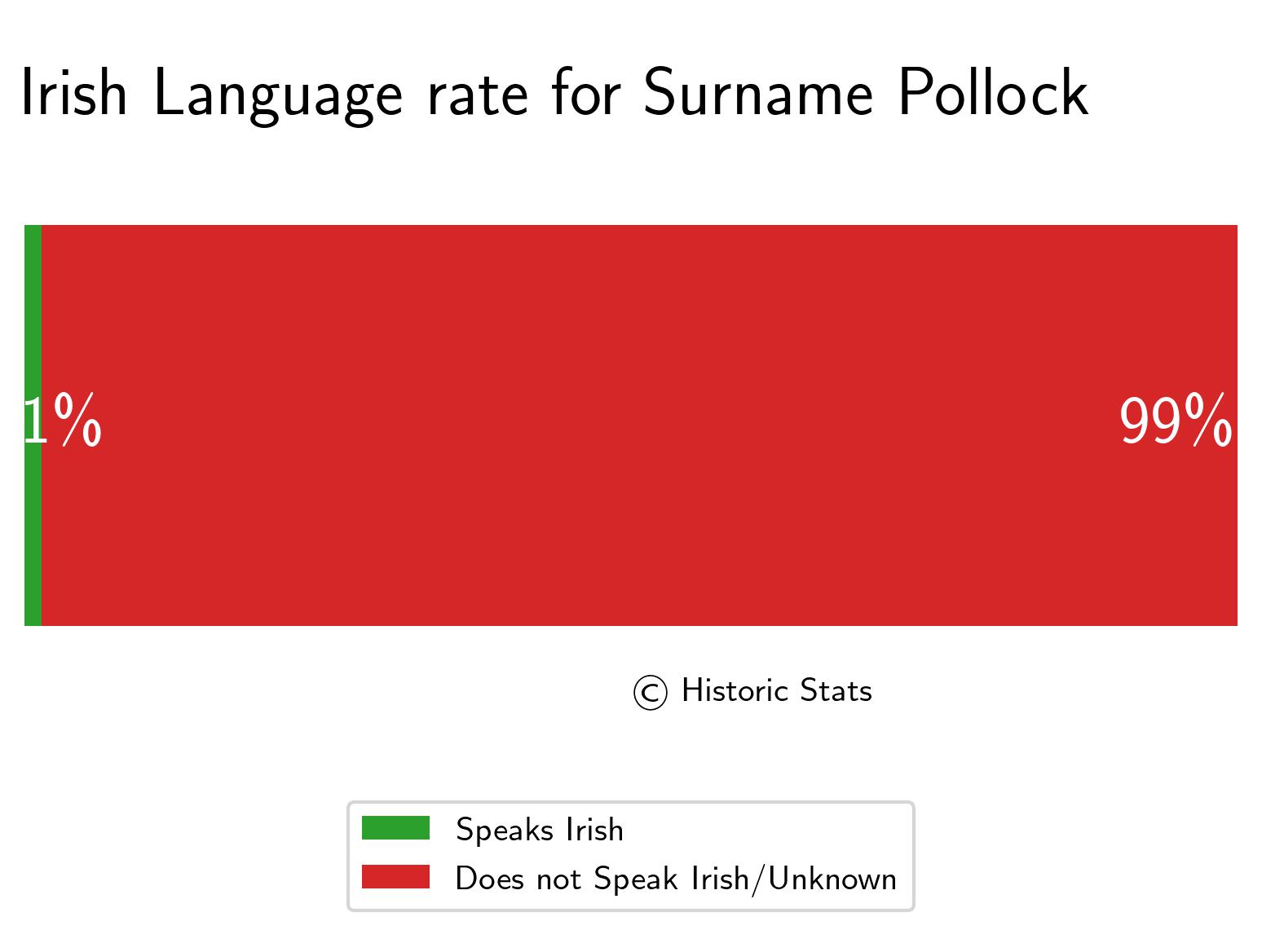
1. Proportion of Population by District
The map here shows the proportion of the population with surname Pollock by district which were also known as the Poor Law Unions. The districts with the highest proportion were Ballymoney at 0.38%, Coleraine at 0.35%, and Stranorler at 0.35%. The proportions shown use scientific notation where the colour map uses a log norm which is discussed in the methodology section which can be viewed using the link above.








